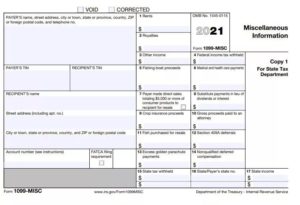If you are a contractor who uses 1099’s to pay your employees, there are some new 1099 contractor laws passed by the Virginia legislature that you’re going to want to know about. Designed to protect employees, they can also have big impacts on their employers, like you. The big change that we want to tell you about today involves “misclassification of employees”.
Governor Northam recently signed several bills into laws that specifically address employment misclassification:
Private Right of Action for Misclassification (House Bill 964/Senate Bill 894): This 1099 contractor law allows workers who claim to have been misclassified as an independent contractor the ability to be awarded damages if they should have been in fact, considered an employee of the company. This means that if you classified your worker as a 1099 contractor when they really operated as your employee (and they decided to take action against you), you could be required to pay them wages, salary, employment benefits, and/or legal fees. Basically, this 1099 contractor law gives workers the right to take action against their employer for misclassifying them as a 1099 contractor when they deserved the benefits of an employee based on the work they were doing and the type of relationship you’ve had with them.
Misclassification Investigations (House Bill 1407/Senate Bill 744): Clearly put, this allows the Virginia Department of Taxation to determine (based on IRS guidelines), whether or not an employee is an independent contractor. If they believe that your worker is an employee who was misclassified as a 1099 contractor, you can be fined up to $1,000 per misclassified individual for the first offense, $2,500 for the second offense and $5,000 for the third. This law goes into effect January 1, 2021.
Prohibition Against Retaliation for Reporting Misclassification (House Bill 1199/Senate Bill 662): This 1099 contractor law prohibits employers from retaliating, threatening or penalizing an employee or independent contractor for reporting misclassification. If you violate this law, you are subject to a civil penalty up to the value of wages lost by the individual as a result of the violation.
More detailed descriptions about these 1099 contractor laws can be found here.

So how do you know if your worker is an employee or 1099 contractor?
The IRS has 20 factors that employers should use as guides to determine the likelihood that the worker should be considered a contractor or an employee. These factors may indicate whether the employer can exercise enough control to establish an employer-employee relationship. From the Virginia Employment Commission:
1. Instructions. An employee must comply with instructions about when, where and how to work. Does the employer have the right to require compliance with the instructions? If yes, then the control factor is there.
2. Training. Employees receive on-going training from (or at the direction of) an employer while 1099 contractors use their own methods and receive no training.
3. Integration. There is control if the worker’s services are integrated into the business operations because the services are important to the business.
4. Services rendered personally. Employees do not have the ability to assign their work to other employees, but an independent contractor may assign their work to others.
5. Hiring, supervising and paying assistants. If an employer hires, supervises and pays assistants, the worker is generally categorized as an employee.
6. Continuing relationship. Even if the work is performed in irregular intervals, if a continuing relationship exists, it indicated an employer-employee relationship.
7. Set hours of work. A worker who has set hours is generally considered an employee.
8. Full time required. An employee usually works full-time for the employer. An independent contractor can set their own schedule.
9. Work done on premises. Independent contractors may perform the work wherever they desire. Employees generally work on premise.
10. Order or sequence set. If the worker must perform services in a specific order, they are usually considered an employee.
11. Oral or written reports. If it is a requirement that the worker provide reports to the employer, there is a certain degree of control present and could be considered an employee.
12. Payments by hour, week or month. This generally points to an employer-employee relationship.
13. Payment of expenses. If the employer pays for the worker’s business or travel expenses, the worker is usually an employee.
14. Furnishing of tools and materials. If the employer provides materials and tools for the worker, the worker is usually an employee.
15. Significant investment. If a worker has significant investment in the facilities where they work at, the worker may be an independent contractor.
16. Profit or loss. Employees are typically paid for their time and labor and have no liability for business expenses.
17. Working for more than one firm at a time. If a worker does work for multiple unrelated firms at once, they are probably an independent contractor.
18. Making services available to the general public. If the worker makes their services available to the general public on a regular basis, they are probably an independent contractor.
19. Right to discharge. The employer’s right to discharge a worker generally indicated that the worker is an employee.
20. Right to terminate. If the worker can quite work at any time without incurring liability, the worker is generally an employee.
Check out Virginia’s Exemptions to the Definition of “Employment” here.
Protecting you and your business is important to us. Holley Insurance offers a wide variety of insurance solutions for business owners like you. If you have questions about your current liability insurance policy, or if you’d like to get you a quote on a new policy, call us today at 540.334.4225 or visit us online.
